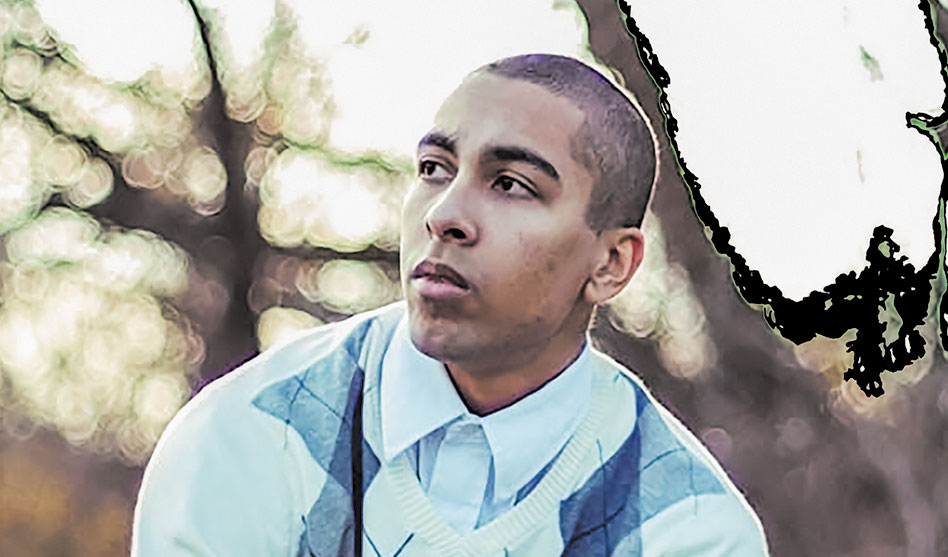Jonathon McClellan
The only way to heal the world is to break the cycle of violence
JONATHON McCLELLAN | Contributing Writer
jonathonmmcclellan@gmail.com
I remember the fall of 1993 like it was yesterday, but not for any reasons one might think. I don’t recall the color of the leaves, the sound of wind chimes dancing or even stunning sunsets. But I remember my mother visiting me during my weeklong stay in the hospital.
That was my first encounter with a spirit of devastating helplessness.
My 5-year-old, pneumonia-stricken body, clothed in a hospital gown, would surely convince any outside observer that I was the one most in need. Hindsight, however, offers a panoramic view and greater understanding. It is my mother, Shirley Edwards, who is the reason that moment, 28 years ago, has been permanently frozen in time.
My mother had limped for miles in the cold weather just to get to the hospital to comfort and care for me. After that long and painful journey, she arrived at my room almost unrecognizable, her face a swollen mass of purple, pink and red skin. Her beautiful eyes could only partially open because my stepfather understood how to best incapacitate his victim.
Had it not been for my mother’s pear-shaped frame, I would not have even recognized her at all. And all I could do was gape at her in open horror, because I was too young to know how to mask my emotions. I felt as though I was witnessing my whole world being engulfed in merciless flames, and all I could do was lie there in my bed.
And no matter how many tears I cried that night, they just weren’t enough to put out the fire.
And yet, even though my mother was the victim that night, I would come to realize as I got older that even she was not the one most in need in that situation.
There was another … .
The man who was my mother’s oppressor — and my tormenter — is no longer alive today. He passed away years ago due to what are believed to have-been issues related to drug use. There is a saying: “Hurt people hurt people.” Ultimately, he died hurting himself because that is all that his life taught him how to do.
The one who was the most in need that long-ago night was the one who was drowning while not realizing that he was dragging down with him those that were trying to save him.
I believe that if you can learn from that which scars you, then you can reclaim your narrative and write your own ending. And the ending that I’d much prefer to write to an otherwise sad story is about a community that reconciles its mistakes by making peace with its oppressors. Because how can there be world peace without the inclusion of the whole world?
Up until now, we’ve been fighting wars with our enemies to bring about peace. But war is not the way to achieve peace. How can it be when war’s very purpose is destruction? The idea that we must go to battle to realize peace is perhaps the greatest misbelief of our time.
Because we’ve never experienced a world at peace with itself, the path towards such peace seems opaque. But the ways in which humanity has historically gone about achieving peace are quite antiquated and repetitive.
So we must learn the lessons of the past and start anew.
We cannot confront our opposition with both war and diplomacy at the same time. Perhaps this sounds idealistic to those who are unwilling to risk losing something precious. And in all fairness, we shouldn’t be ashamed of defending our fundamental rights of life, liberty, and the pursuit of happiness. But our paths need not be paved with the lives of the unjust.
A better world is one which seeks justice for all, freedom for all and peace with all neighbors across every border. This has never been achieved only because so few have been willing to break the cycles of harm and punishment.
Yes, we should hold the cruel accountable. But if we become cruel in response to the evils that presently harm us, then the judges will inevitably become blind.
To quote Socrates, “Those who are hardest to love need it the most.” Our enemies have always been the most in need, and learning to love them has always been the answer to the riddle.
A good doctor understands the limits of their time and resources and so will address the sickest patients first, and then move onto the less severe cases. If our world has become an ill patient, then we must treat the wounds which will most likely lead to death if ignored. And the medicine that any good doctor should always carry in ample supply is love for their patients.
Jonathon McClellan is the award-winning author of Messages of Hope and The Ant’s Palace, copoes of which are avialbale online. Contact him via email: jonathonmmcclellan@gmail.com Follow him at facebook.com/newseedsofhope.
















